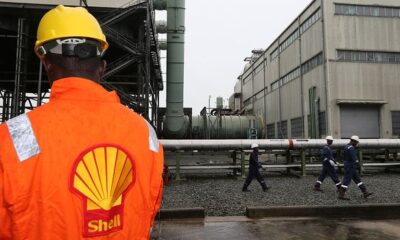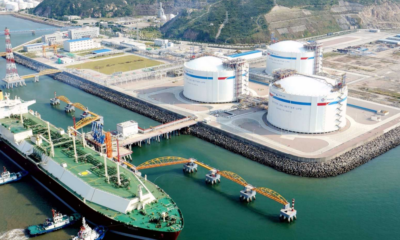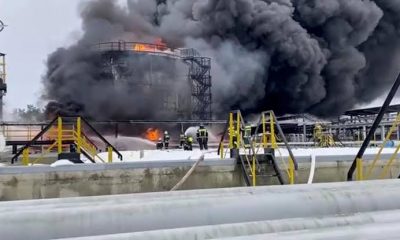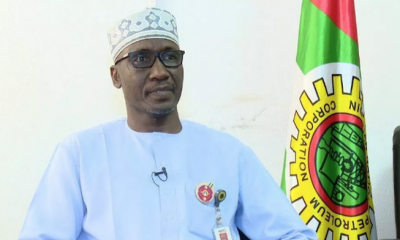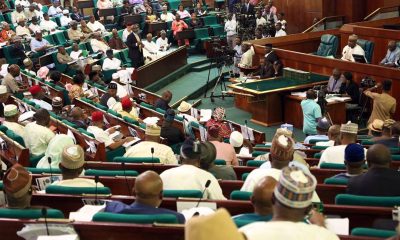NEWS
Nigeria incurs $34 billion loss due to decline in ExxonMobil-Seplat production — Lokpobiri
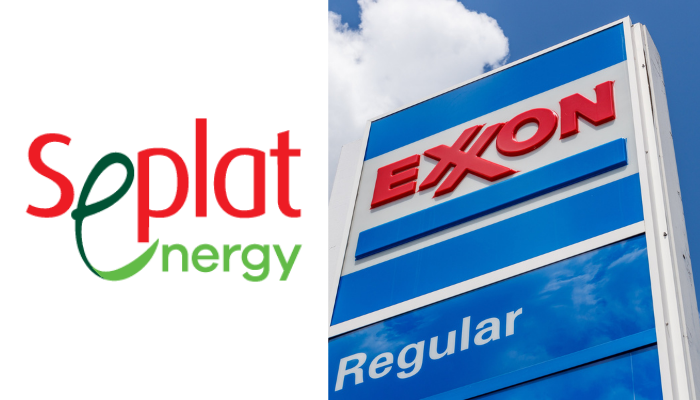
At the Second Quarter Dinner of the Petroleum Club in Lagos, Minister of State for Petroleum Resources, Heineken Lokpobiri, unveiled a startling revelation: Nigeria has incurred a staggering loss of $34 billion over the past two and a half years.
This loss is attributed to a decline in production from assets divested by ExxonMobil to Seplat Energy, a transaction that is still awaiting approval from the federal government.
Lokpobiri highlighted the severity of the situation, explaining that the output from these divested assets has plummeted from 600,000 barrels per day (bpd) to a mere 120,000 bpd.
This drastic decline represents a shortfall of 480,000 bpd, resulting in a significant financial loss of $34 billion.
Despite this setback, Lokpobiri remains optimistic about Nigeria’s potential to increase oil production. He believes that the country could ramp up production to five million barrels per day within the next 12 to 18 months. However, he stressed the urgent need for sustainable investment and problem-solving in the sector to achieve this goal.
The minister emphasized that resolving the issues hindering the divestment process and making minimal investments in the assets could potentially restore production to its previous levels.
This restoration would involve adding 480,000 bpd to the current output, contributing significantly to the nation’s economic growth.
Lokpobiri explained, “My own opinion is that, look, we are in short of 480,000 barrels a day from that ExxonMobil-Seplat transaction.
“For the past two and a half years, oil has been moving around $80 a barrel. Four hundred and eighty thousand barrels a day, multiply it by two and a half years, it will give you about $34 billion.
“When I was on this table, I was doing rough mathematics and I guess you have your phones. So, you can do the calculation. If one asset was doing about 600,000 barrels, because of certain problems, which we’re trying to resolve, production declined to 120,000 barrels, which means we’ve lost about 480,000 barrels a day.
“Multiply it by $80 a barrel. Every day, you’ll get about $34 million. Multiply it by two and a half years, you’re talking about over $30 billion. If $30 billion is injected into our economy today, I guess you guys will have to sell more of your dollars because dollar will naturally drop. This exchange rate is sometimes a question of demand and supply.”
Lokpobiri’s mandate, backed by President Bola Tinubu, prioritizes the attraction of investments to the sector and the resolution of key industry challenges.
He also discussed the potential for indigenous companies to capitalize on divested assets, presenting an opportunity for growth and prosperity.
“If from only that Seplat-ExxonMobil transaction, we have lost about $35 billion, imagine if that money was in Nigeria. Imagine if NNPC has about 70 per cent of that money. If they have that money to expand their investment, I believe that Nigeria will be in a better place,” he added.
As Nigeria vies for the hosting rights of the African Energy Bank (AEB), Lokpobiri reiterated the government’s commitment to creating an enabling environment for investment and maximizing the nation’s oil and gas potential.
He stressed the importance of eliminating bottlenecks hindering growth and ensuring sustainable production growth to increase revenue and fulfil promises made to Nigerians by the president.
“We are willing to remove all bottlenecks in the industry because every country that has oil, prioritises investment in the oil and gas sector, and that is why as a government, the president has directed that we should resolve all problems we have in the industry.
“And that is why we are also trying to resolve the problem of OML 245, the popular Malabu oil field, because we want to attract all the investment because in my own opinion, if we don’t attract the investment, this resource we have will just be buried under the soil with no value addition.”

